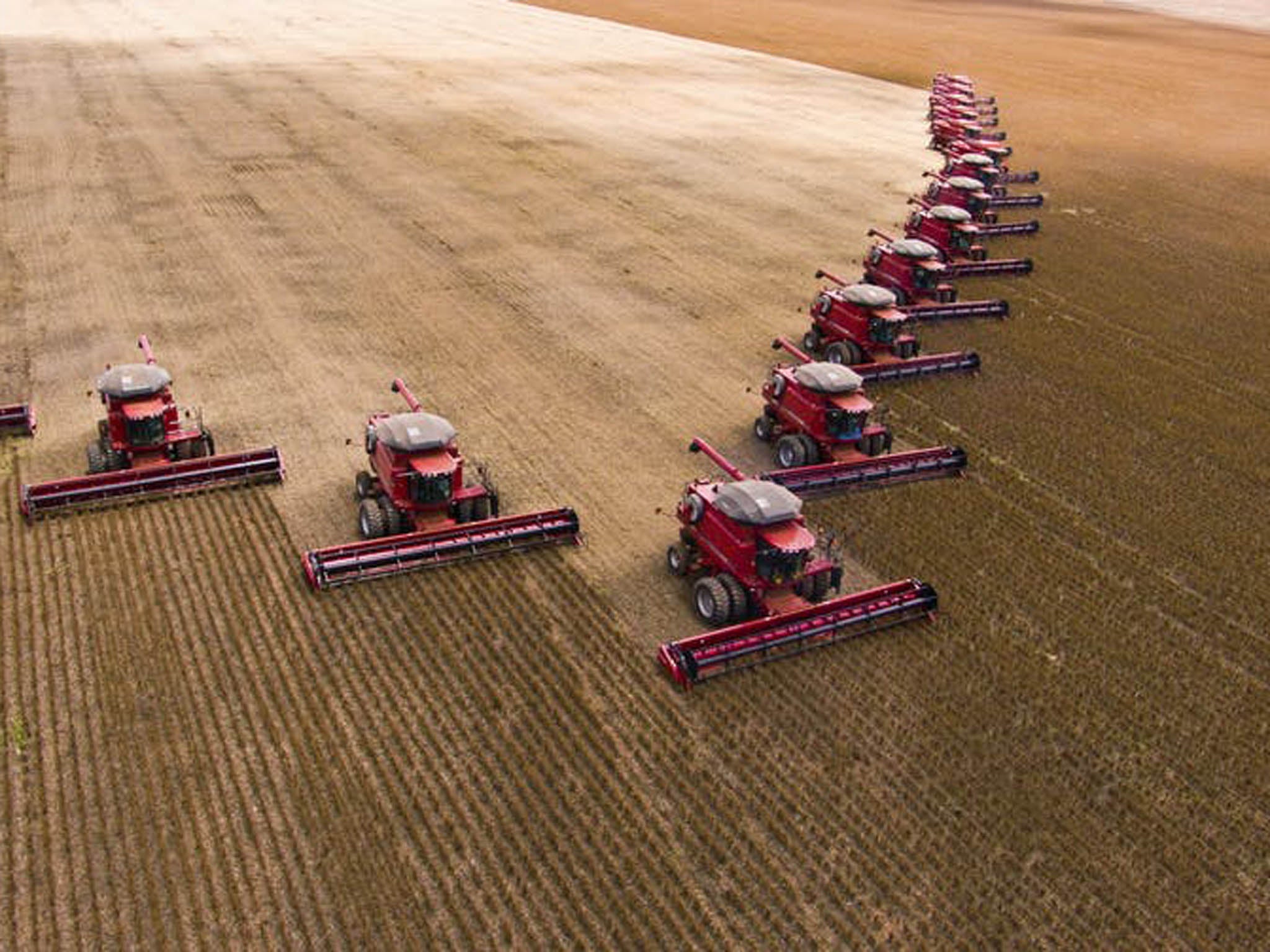How we can keep our food system from the brink of apocalypse
The Earth can’t cope with more pressure from our agricultural practices, but it’s not too late to start respecting our planet’s limits

Your support helps us to tell the story
From reproductive rights to climate change to Big Tech, The Independent is on the ground when the story is developing. Whether it's investigating the financials of Elon Musk's pro-Trump PAC or producing our latest documentary, 'The A Word', which shines a light on the American women fighting for reproductive rights, we know how important it is to parse out the facts from the messaging.
At such a critical moment in US history, we need reporters on the ground. Your donation allows us to keep sending journalists to speak to both sides of the story.
The Independent is trusted by Americans across the entire political spectrum. And unlike many other quality news outlets, we choose not to lock Americans out of our reporting and analysis with paywalls. We believe quality journalism should be available to everyone, paid for by those who can afford it.
Your support makes all the difference.The global food system has a lot to answer for. It is a major driver of climate change, thanks to everything from deforestation to cows burping. Food production also transforms biodiverse landscapes into fields inhabited by a single crop or animal. It depletes valuable freshwater resources, and even pollutes ecosystems when fertilisers and manure washed into streams and rivers.
The planet can only take so much of this stress. Staying within its environmental limits will require a global shift towards healthy and more plant-based diets, halving food loss and waste, and improving farming practices and technologies. That’s what a team of international researchers and I found in a new study published in the journal Nature.
Crossing environmental limits
The global food system has fundamentally altered our planet and the resource base humanity depends on. Food production is responsible for about a quarter of all greenhouse gas emissions and therefore is a major driver of climate change. Agriculture occupies more than a third of the Earth’s land surface and has led to reductions in forest cover and loss of biodiversity. Farming also uses more than two-thirds of all freshwater resources, and the over-application of fertilisers in some regions has led to “dead zones” in oceans.
Without concerted action, we estimated that the environmental pressure of the food system could increase by 50-90 per cent by 2050 as a result of population growth and the continued westernisation of diets. At that point, those environmental pressures would exceed key planetary boundaries that define a safe operating space for humanity.
Crossing planetary boundaries would increase the risk of destabilising essential ecosystems. Among others, it could lead to dangerous levels of climate change with higher occurrences of extreme weather events; affect the regulatory function of forest ecosystems and biodiversity; result in disruptions of water flows with impacts on the global hydrological cycle; and pollute water bodies such that it would lead to more oxygen-depleted dead zones in oceans.
Planetary option space
Fortunately, such a situation can be avoided. We combined detailed environmental accounts with a model of the global food system that tracks the production and consumption of food across the world. With this model, we analysed several options that could keep the food system within environmental limits. Here is what we found:
Climate change cannot be sufficiently mitigated without people eating a lot less meat. Adopting healthy and more plant-based diets globally could reduce the greenhouse gas emissions of the food system by more than half, and also reduce other environmental impacts, such as those from fertiliser application and the use of cropland and freshwater, by a tenth to a quarter.
In addition to dietary changes, improving management practices and technologies in agriculture is required to limit pressures on agricultural land, freshwater extraction, and fertiliser use. Increasing agricultural yields from existing cropland, balancing application and recycling of fertilisers, and improving water management, could, along with other measures, reduce those impacts by around half.
Finally, halving food loss and waste could, if achieved globally, reduce environmental impact of food production by up to a sixth.
A call to action
Many of the solutions we analysed are already being implemented in some parts of the world, but it will need strong global coordination and rapid uptake to make their effects felt.
Take the necessary improvements to farming technologies and management practices, for instance. That would require a lot more investment in research and public infrastructure, it would need the right incentive schemes for farmers to ensure they don’t miss out financially, and things like fertiliser use and water quality would need much stronger regulation.
Tackling food loss and waste will require measures across the entire food chain, from storage and transport, through food packaging and labelling, to changes in legislation and business behaviour that promote zero-waste supply chains.
When it comes to diets, comprehensive policy and business approaches are essential to make serious changes possible and attractive for a large number of people. Important aspects include school and workplace programmes, economic incentives and labelling, and aligning national dietary guidelines with the current scientific evidence on healthy eating and the environmental impacts of our diet.
As an individual, you can help by adopting a healthier diet with less meat. You can call on business to reduce waste across their supply chain and offer more plant-based food options. And you can hold politicians to account by demanding strong regulation of environmental resource use and pollution.
Marco Springmann is a senior researcher on the Oxford Martin Programme on the Future of Food, at the University of Oxford. This article first appeared on The Conversation (theconversation.com)
Join our commenting forum
Join thought-provoking conversations, follow other Independent readers and see their replies
Comments